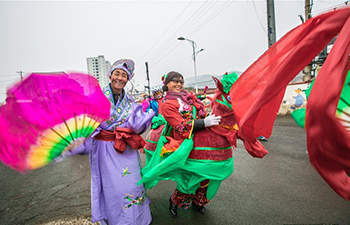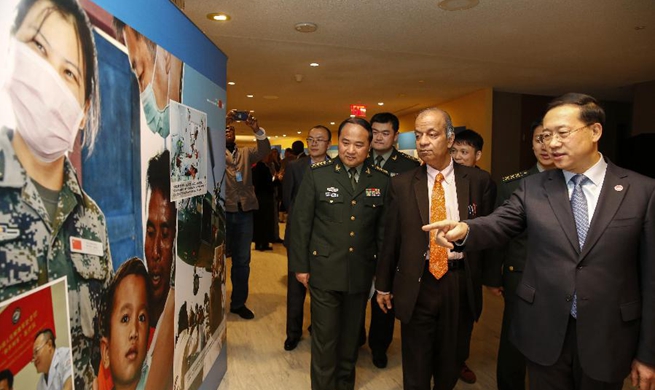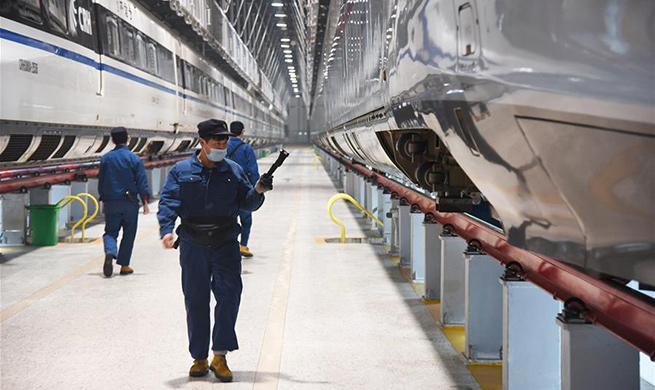UNITED NATIONS, Feb. 13 (Xinhua) -- The United Nations' new top envoy for Iraq expressed concern on Wednesday over the political stalemate revolving around the formation of the Cabinet.
The collaborative spirit between the leading parliamentary blocs four months ago allowed the consensual nomination of Adel Abdul-Mahdi as prime minister-designate, including a notably smooth transition of power, said Jeanine Hennis-Plasschaert.
However, to date, the government of Iraq remains incomplete. Four ministerial positions are still vacant, with three of them -- interior, defense and justice -- being subject to fierce disagreements among political blocs, she told the Security Council in a briefing.
Within this context, multiple parliamentary sessions have been adjourned, interrupted or boycotted over the past months. And as a result, the implementation of the government program has made little headway and parliamentary committees have yet to start their substantive work, noted Hennis-Plasschaert, the UN secretary-general's special representative and head of the UN Assistance Mission for Iraq.
To make things worse, the Iraqi Parliament is in a one-month recess and will only reconvene in early March, she said.
Ultimately, the people of Iraq are bearing the brunt of the political stalemate, at a time when it is critical to address their needs and demands for better services and to address reconstruction, justice, corruption, unemployment as well as economic and social development, she warned.
Long government formation processes are not new, nor unique to Iraq. However, in the Iraq context there is a real urgency to complete the process without delay to enable the government to consolidate the security gains achieved, to focus on rebuilding the country after years of conflict and to ensure a high-quality provision of services for their citizens, said Hennis-Plasschaert.
She called on the political actors to overcome political infighting and to demonstrate that political compromise can prevail in the greater interests of the Iraqi people. "So yes, it is high time for Iraqi leaders to shift focus from factional politics, and to invest efforts in addressing the immediate needs of the Iraqi citizens as further delays could give space to significant repercussions on the stability of the country."
Security remains a concern in Iraq, said the envoy.
Although terrorist activities have decreased, during the past month attacks have been carried out against both civilians and the Iraqi Security Forces, she said.
Despite its military defeat, the Islamic State (IS) terrorist group continues to pose a security threat to Iraq and the region, she warned.
Another concern relates to armed groups and criminal formations operating out of state control and also expanding their economic and social control in Iraqi daily life, she said. "Regardless of their affiliation, the government needs to take quick measures to reform its security sector and act resolutely against these groups and their activities."
She said the atmosphere of despair during the period of IS occupation has given some way to hope and optimism for the future. "However, one cannot shy away from the fact that the road to well-deserved long-term stability in Iraq will be far from easy."
Therefore, realism and great determination will be necessary in facing the challenges ahead, she said, calling for ownership and engagement of all Iraqi components, political will, and a sense of a shared history and a common future.
At the same time, continued support from the international community will be of paramount importance, she said.

















